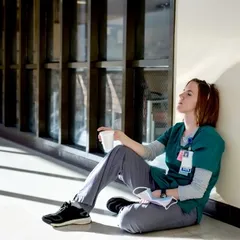Healthcare News & Opinion
View all postsHow to Deal With Social Issues in the Medical Setting
By Nora Ekeanya D.O. - September 14, 2017
In my short career I’ve learned that, to excel as a physician, you have to do more than be able to regurgitate information. Be an example of comprehensive understanding, cohesion, and humility.
How Health Care Providers Can Help Victims of Hurricane Harvey
By Patricia Bratianu RN PhD RH-AHG - September 6, 2017
We all want to assist victims of Hurricane Harvey. There are several ways for healthcare providers to help the victims and those providing relief services. Some of us can go to the disaster area. Those
How Hospital Human Resources Can Benefit Patient Satisfaction Scores
By Stephen Leitz - August 10, 2017
Since the Hospital Consumer Assessment of Healthcare Providers and System went live in 2008, hospitals have had to look closer at their practices to ensure they're meeting the quality outcomes and patient satisfaction, as the Centers for Medicare and Medicaid now tie a portion of reimbursements to the HCAHPS score.
Lessons of Freakonomics - USMLE Step 2 CS is Excellent at Revenue Generation
By Ted Tsai, MD - August 1, 2017
Last time I discussed the book Freakonomics and how it described that people do what they are incentivized to do-- often to unintended results. Today I’m going to discuss a recently controversial aspect
Code Lavender: Healthcare Providers Caring for Themselves
By Sheramy Tsai - July 20, 2017
Stress is an inherent part of working in the health care system. While health care providers become accustomed to the daily stressors involved in their jobs, some moments arise that push caregivers past their emotional limits. Whether these situations consist of the death of a colleague, a stressful interaction between two health care providers, a difficult patient situation, or a variety of other stress-inducing situations, “Code Lavender” may be just what the doctor ordered.
Freakonomics Taught Me that Simple Solutions Aren't Always Best
By Ted Tsai, MD - July 11, 2017
“What do schoolteachers and Sumo wrestlers have in common?” That’s the title of the first chapter of Freakonomics by Steven Levitt and Stephen Dubner, a book that I often cite as my introduction
How the Corporatization of Medicine Saved My Life
By Mitchel Schwindt, MD - July 5, 2017
The wake-up call came just a few years later. The stated merger with a larger national group was nothing of the sort. I soon found my pay restructured, pension wiped out, and profit sharing canceled. By then my family was firmly rooted in the community and moving was not an option. As I watched many of my colleagues and friends pack up and leave, I found myself drowning in this bleak new reality.
Are Your Affairs in Order?
By Mitchel Schwindt, MD - June 15, 2017
Delivering horrible news never gets easier. The physician pauses with a tense hand on the door, takes a deep breath, and enters the patient's room. A room full of hope and anticipation is displaced abruptly with fear and sadness. The diagnosis now revealed, and the patient and family step back in disbelief. We will do everything we can to help you beat this but recommend that you get your affairs in order...
Doctor means "to teach"
By Jack Isler, MD - May 16, 2017
When I think back to the original meaning of the word “doctor,” I believe we may have lost our way in the physician/patient interaction. The word “doctor” originates from a Latin word, meaning to teach. As a physician and educator, I can’t remember the last time I went to the doctor and was taught something. Prior to starting medical school, I spent 6 months in the hospital and rehab, rebuilding my body from a construction accident. This situation was very painful and debilitating, but it provided me with the patient’s perspective to illness. It is from this perspective that all physicians need to originate. By teaching, you not only strive to treat, but you strive for the best outcome.
Why Physicians Must Engage with Technology
By Mitchel Schwindt, MD - May 2, 2017
How would anyone feel if half of everything they learned turned out to be wrong? Early in my medical career, a mentor relayed a similar age-old sentiment. "One-half of everything you learn in medical









